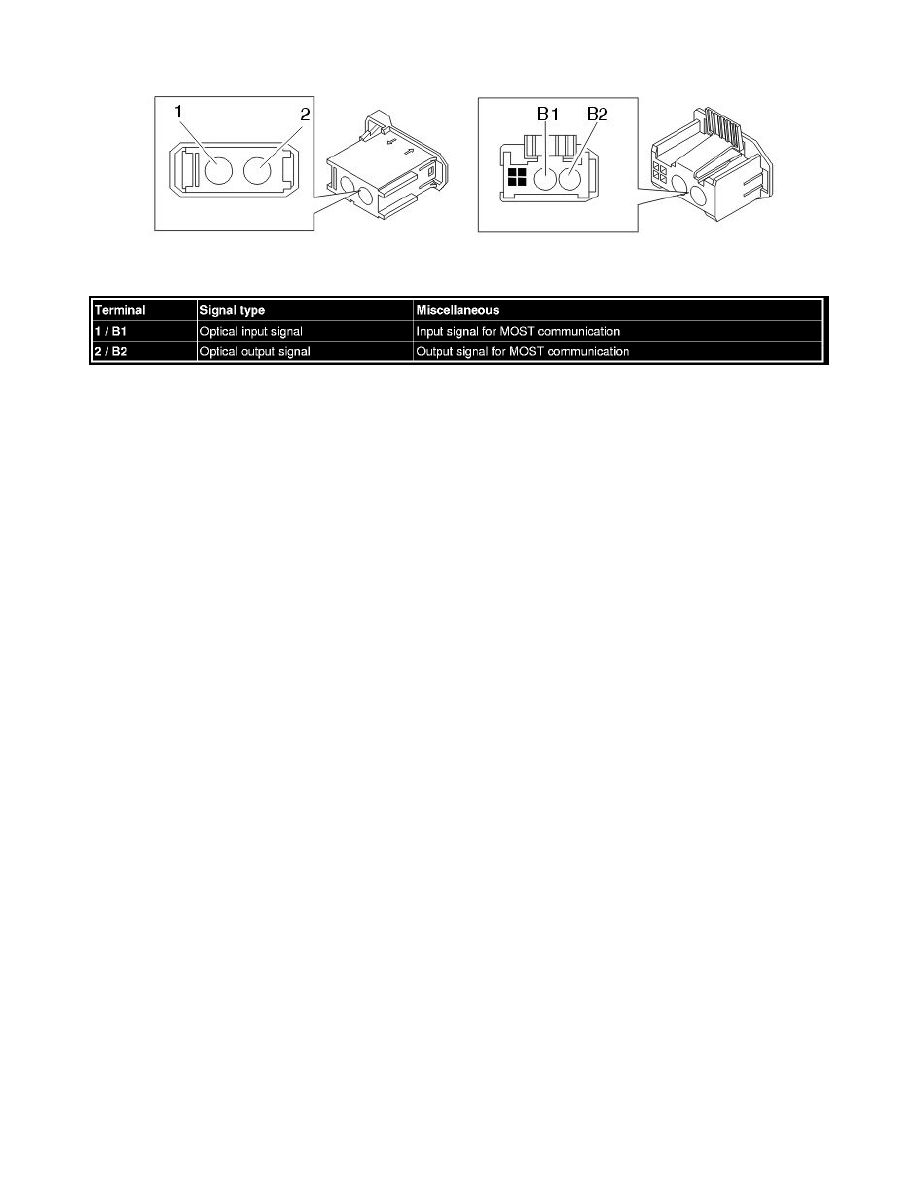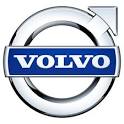S80 AWD V8-4.4L VIN 85 B8444S (2008)

Each control module in the MOST network has an optical connector which consists of two diodes, a sender diode and a receiver diode. These transmit
and receive light pulses.
The actual communication between two control modules is as follows. A sender diode transmits the message as a light pulse. This is transmitted from the
control module via the MOST network to a photo-optical receiver diode in the receiving control module.
The two optical terminals in the connector are numbered in the same way on all control modules in the MOST network. There are two sizes of switch
that the two optical terminals are mounted in. One with a connector with integrated power supply is integrated with the optical terminals and the other
has a connector with only the optical terminals.
MOST communication
All messages are transmitted as light pulses in the same direction on the MOST network. This means that if other control modules are connected between
the two control modules which are communicating, the light pulses pass through these with no effect on the information. The control modules which are
passed through amplify the light pulse so that it does not become too weak.
A control module with an internal fault can be set to bypass mode. In this mode, the light pulses are sent straight through the control module without the
control module amplifying the light pulse. This means that the distance before the light pulse is amplified is longer and therefore the luminance is
weaker. If the light pulse is too weak, it cannot be received by the receiving control module.
The infotainment control module (ICM) is the gateway between the MOST and CAN networks for communication to and from control modules
connected on the CAN network.
The infotainment control module (ICM) monitors the communication on the MOST network. This involves distributing sound channels on the MOST
network, so that sound data can be distributed from, for example, the Integrated Audio Module (IAM) to the audio module (AUD). The majority of
activations on the MOST network are initiated by the infotainment control module (ICM).
The infotainment control module (ICM) also manages diagnostic trouble codes (DTCs) on the MOST network.
If a control module on the MOST network stops working and is unable to transmit light pulses onwards, or if there is an open-circuit in the fiber optic
cable, the entire MOST network will stop working. This means that all the control modules on the MOST network will stop working. For further
information about remedying this, see: Fault management on the MOST-network See: MOST Network/Fault Management On the MOST Network
The infotainment control module (ICM) must always be connected on the MOST network for communication on the MOST network to work.
The MOST network connections increase and the signal routing may change when control modules are added because a adapter cable harness is used to
connect the new control module.
Location of control modules on the MOST network
Model year 2007
